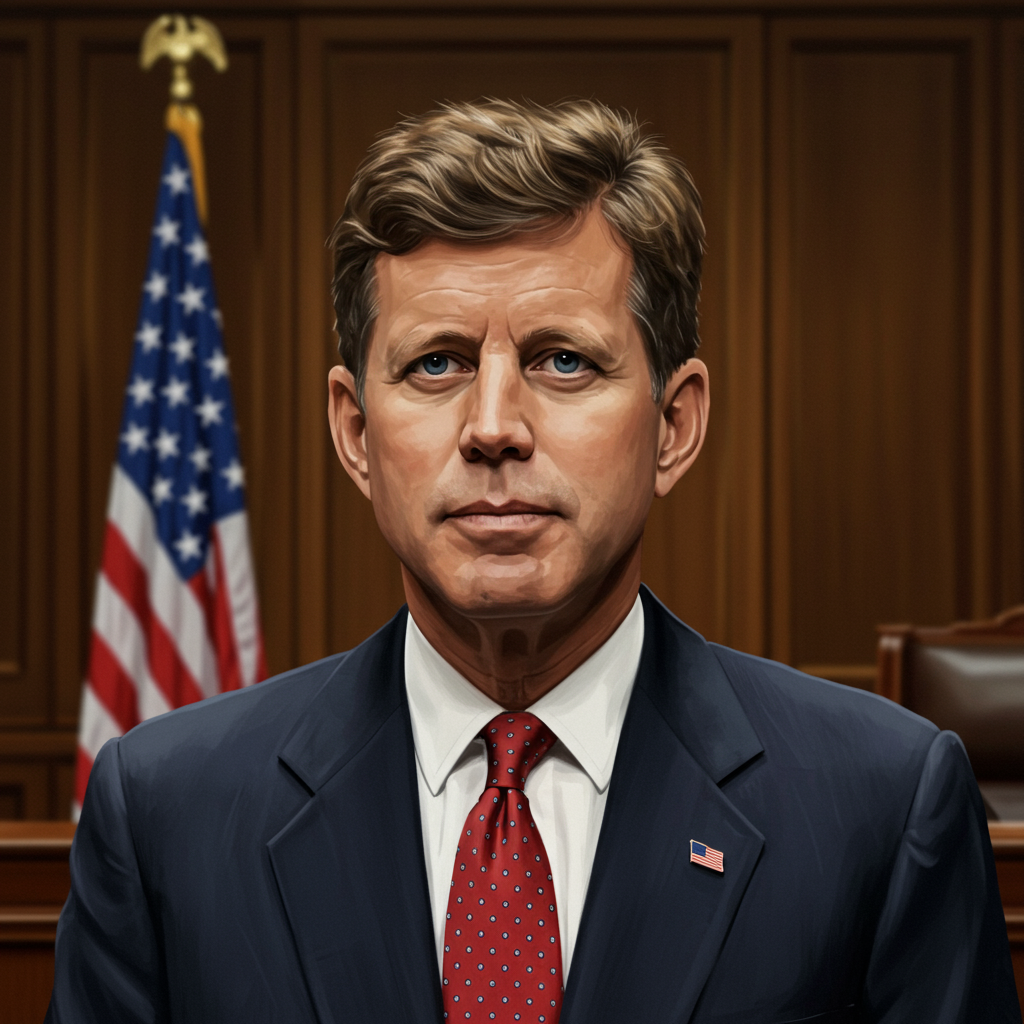Significant and sudden changes are impacting the influential group that shapes U.S. vaccine policy. Robert F. Kennedy Jr., the current Secretary of health, has dramatically altered the composition of the CDC’s Advisory Committee on Immunization Practices (ACIP). This move has sparked intense concern among public health experts and medical organizations nationwide. Critics argue the changes could undermine public trust in vaccines and potentially affect access to critical immunizations. This article explores the recent developments, the background of the committee, the controversial first meeting of the new members, and the strong reactions from the medical community.
Understanding the ACIP’s Vital Role
The Advisory Committee on Immunization Practices (ACIP) is a crucial body within the Centers for Disease Control and Prevention (CDC). It holds immense power in determining national health strategy. While the Food and Drug Administration (FDA) approves vaccines for use, ACIP decides how they are used. This includes crafting the official U.S. immunization schedule for people of all ages.
Once the CDC Director approves ACIP’s recommendations, they become federal policy. This means health insurance plans must cover these recommended vaccines under the Affordable Care Act. Crucially, ACIP votes also decide which vaccines are included in the federally-funded Vaccines for Children Program. This program provides free vaccines to approximately half of American children. These are often children who are low-income or underinsured. Therefore, ACIP’s decisions directly affect vaccine availability and equity across the nation.
A Sweeping Change in Committee Leadership
Until recently, the ACIP consisted of 17 members, typically leading experts in fields like pediatrics, infectious diseases, immunology, and public health. However, Secretary Kennedy Jr. made a sweeping move. He reportedly fired all 17 existing members. He replaced them with a significantly smaller group of just 7 individuals.
This drastic change in membership composition has drawn significant criticism. Many of the new appointees reportedly lack deep, specialized expertise specifically in vaccines or immunology. Furthermore, some new members have previously been associated with promoting vaccine misinformation. This includes claims about the safety and necessity of standard childhood immunizations. A spokesperson for the Department of Health and Human Services (HHS) defended the appointments. They stated the goal was to replace “vaccine groupthink with a diversity of viewpoints.”
The First Meeting: Raising Concerns
The first meeting of the newly constituted ACIP working group was closely watched. It marked a notable departure from the committee’s typical procedures and focus. NPR public health correspondent Pien Huang attended this meeting. Her reporting described promises of “sweeping changes” to how vaccine policy is decided in the U.S. Alarmingly, the new group reportedly “resurrected issues that have been advanced by groups that question vaccines.”
Several moments during this initial meeting highlight the shift and fueled expert concerns:
Thimerosal Discussion: Despite CDC staff presenting data on a severe recent flu season, new member Dr. Robert Malone characterized pediatric deaths as a “modest number.” A significant portion of the meeting agenda focused on thimerosal. This is a vaccine preservative rarely used today. Its alleged link to autism has been widely studied and disproven by extensive scientific research. The new committee chair, Martin Kulldorff, stated this discussion aimed to increase public trust. A presentation on thimerosal was even delivered by Lyn Redwood. Redwood is the former president of Children’s Health Defense. This group was founded and is chaired by Secretary Kennedy Jr. It has actively advocated against vaccines and spread misinformation. Redwood herself is not a scientist or medical doctor.
Controversial Vote: Following the thimerosal discussion, the majority of the new committee members voted to limit recommendations for flu vaccines. Their vote favored only those without thimerosal. Dr. Cody Meissner, a pediatrics professor at Dartmouth and the only member to object, pointed out the lack of scientific evidence for thimerosal causing harm. He also noted the availability of thimerosal-free options for young children already. This vote was considered highly unusual for ACIP proceedings.
Inconsistent RSV Votes: During a discussion about a product protecting infants from Respiratory Syncytial Virus (RSV), new member Retsef Levi questioned if the product was causing infant deaths. This was raised despite CDC data and other members dismissing this concern. Levi voted “no” on the primary recommendation for the RSV product. He cited a need for a “precautionary approach.” However, moments later, he voted “yes” to include the very same product* in the Vaccines for Children Program. He stated the need to ensure access for children who need it. Another new member, Vicky Pebsworth, reportedly associated with a group advocating for vaccine exemptions, exhibited a similar inconsistent voting pattern.
Looking Ahead: Potential Policy Impacts
Chair Kulldorff announced plans for new work groups. These groups aim to potentially decrease the number of shots children receive. They also plan to review vaccines not evaluated in over seven years. This review is intended to assess their continued necessity or optimal timing.
These announced actions add to existing concerns. Secretary Kennedy Jr. previously removed universal COVID vaccine recommendations for certain groups without consulting or waiting for ACIP input. This unilateral action bypassed the standard public health process. Public health professionals fear the new committee’s direction could lead to policies that make it harder for people to access recommended vaccines.
Strong Opposition from Medical Experts
The changes to the ACIP and the events of the first meeting have drawn sharp criticism from across the medical and public health community. Experts voiced significant alarm. Tina Tan, President of the Infectious Diseases Society of America, described the meeting as “politicized, chaotic, and not transparent.” She stated it was harmful to Americans and likely to reduce vaccine confidence.
Numerous experts, including pediatricians and infectious disease specialists, have echoed these worries. The American Academy of Pediatrics (AAP) chose to boycott the meeting entirely. They stated they believed there would be no opportunity for meaningful participation. The subsequent thimerosal vote was seen by many as validation of this concern. Dr. Andy Pavia, a pediatrician, expressed experiencing “some degree of horror” watching the proceedings. Experts are particularly concerned that decisions made by the new committee could reduce access to vaccines for vulnerable populations. They worry this could reverse decades of progress in controlling preventable diseases.
Frequently Asked Questions
What significant changes were made to the CDC’s ACIP committee?
Secretary of Health Robert F. Kennedy Jr. reportedly fired all 17 existing members of the Advisory Committee on Immunization Practices (ACIP). He then replaced them with a new, smaller group of 7 members. Many of these new appointees are said to lack deep expertise in vaccines. Some have previously spread vaccine misinformation.
Why are public health experts concerned about these changes?
Experts worry the changes could undermine public trust in vaccines. They also fear a reduction in access to crucial immunizations. Concerns stem from the reported lack of vaccine expertise among new members, the inclusion of individuals linked to misinformation, and specific actions taken at the first meeting. Actions like focusing on disproven thimerosal concerns and inconsistent voting patterns on vital vaccines have heightened these fears.
What specific controversial actions occurred during the new committee’s first meeting?
The first meeting saw a significant discussion and vote on thimerosal, a preservative with a disproven link to autism, despite scientific consensus. The committee voted to favor flu vaccines without thimerosal. Members also exhibited inconsistent voting during discussions on an RSV product for infants. One member voted against the primary recommendation but then voted to include the same product in the Vaccines for Children Program shortly after.
The restructuring of the ACIP represents a potentially pivotal shift in U.S. vaccine policy. The move by Secretary Kennedy Jr. has replaced experienced vaccine experts with a smaller group. This new group includes individuals with different backgrounds and viewpoints, some previously associated with vaccine skepticism. The initial actions of the new committee, particularly the focus on issues considered settled by mainstream science and the concerns about inconsistent decision-making, have generated alarm within the medical community. Critics fear this politicization of the process could erode confidence in vaccines. This could lead to lower vaccination rates and a resurgence of preventable diseases, ultimately impacting public health and access to care nationwide.



